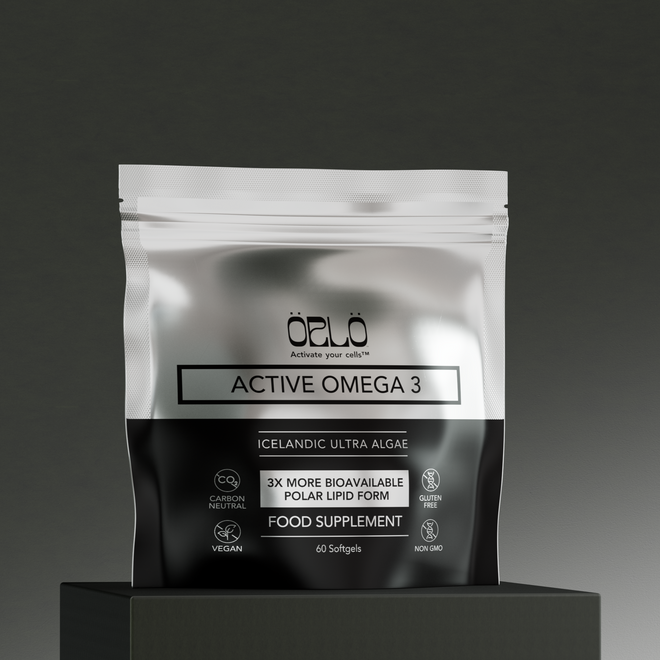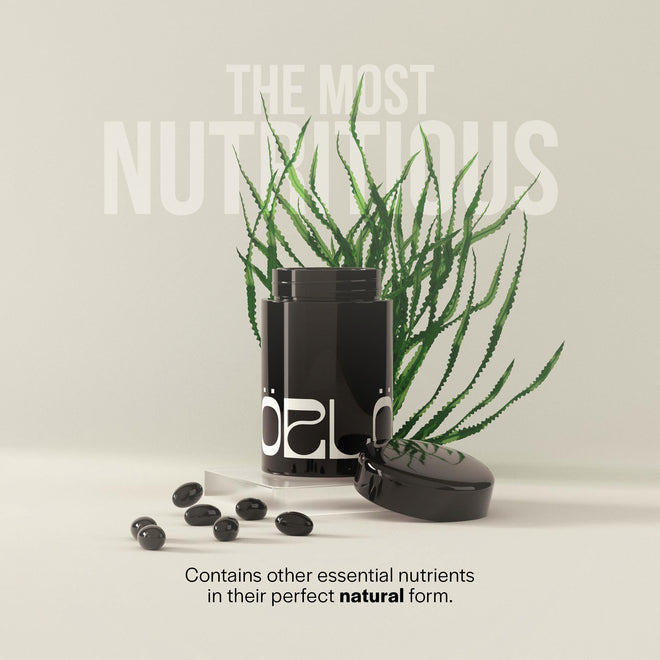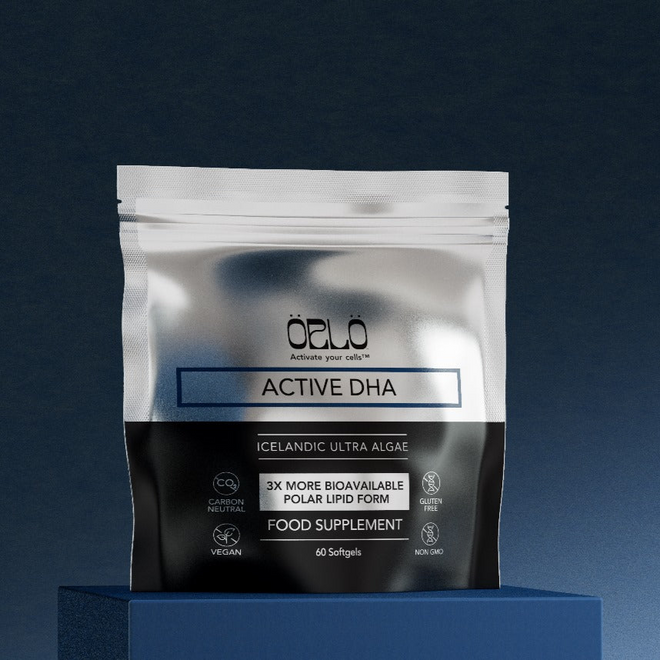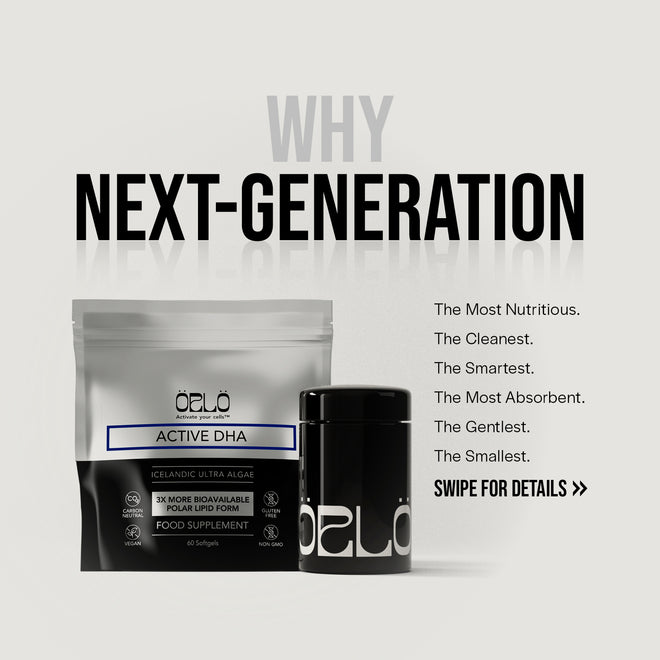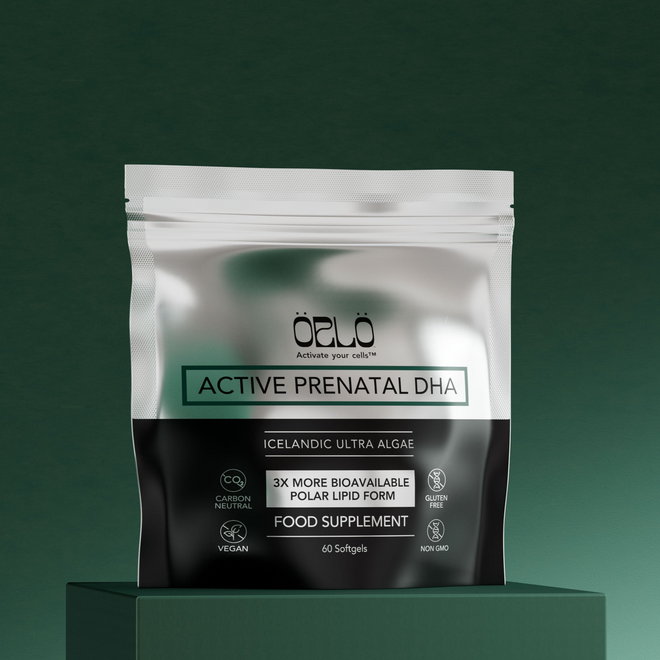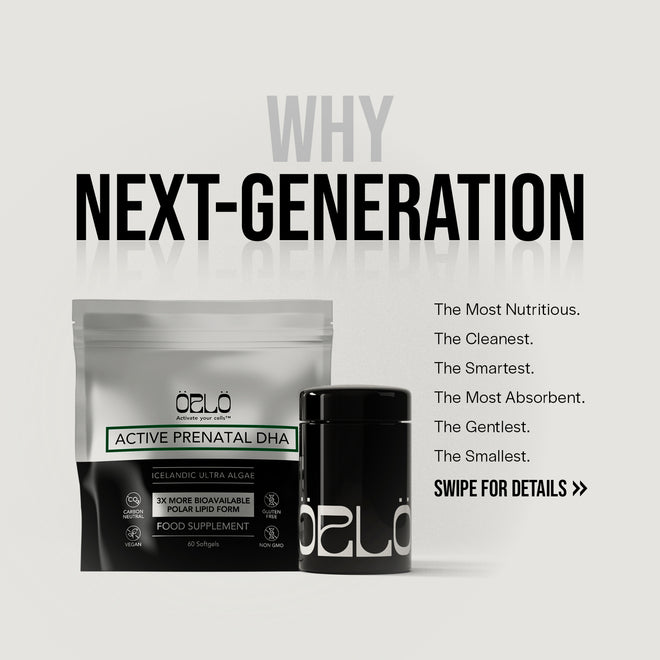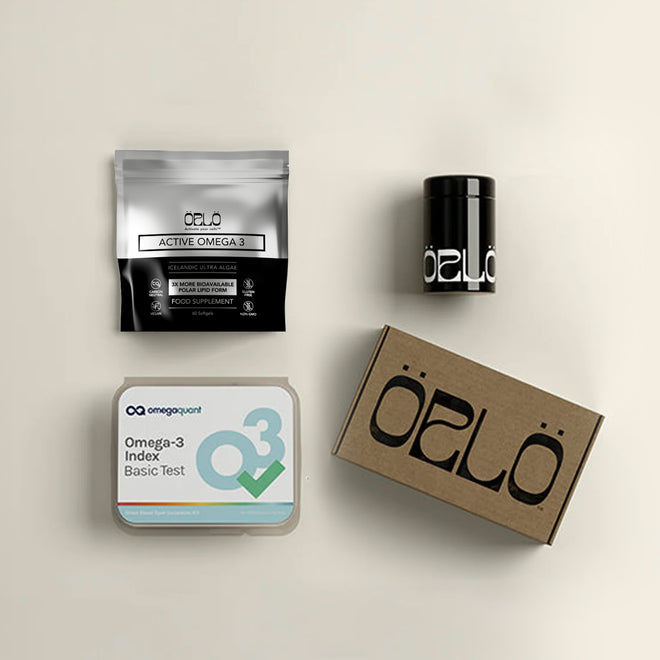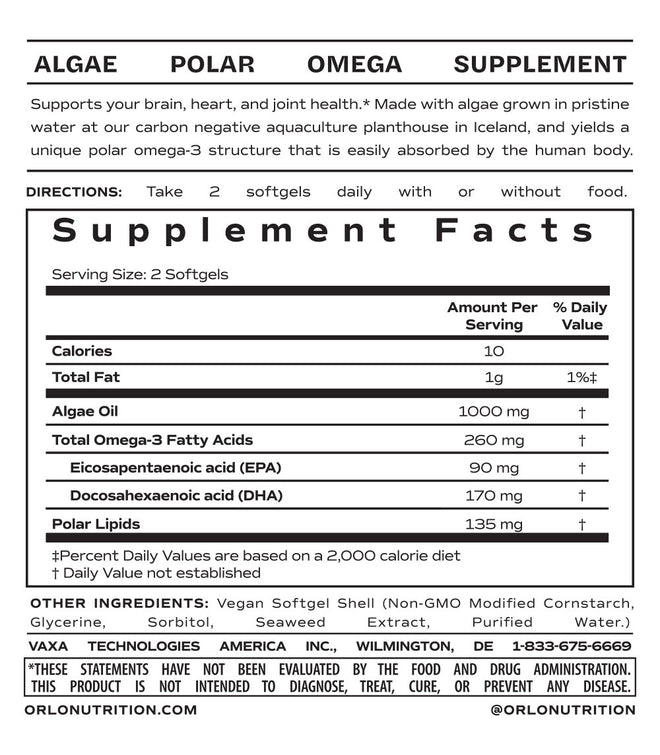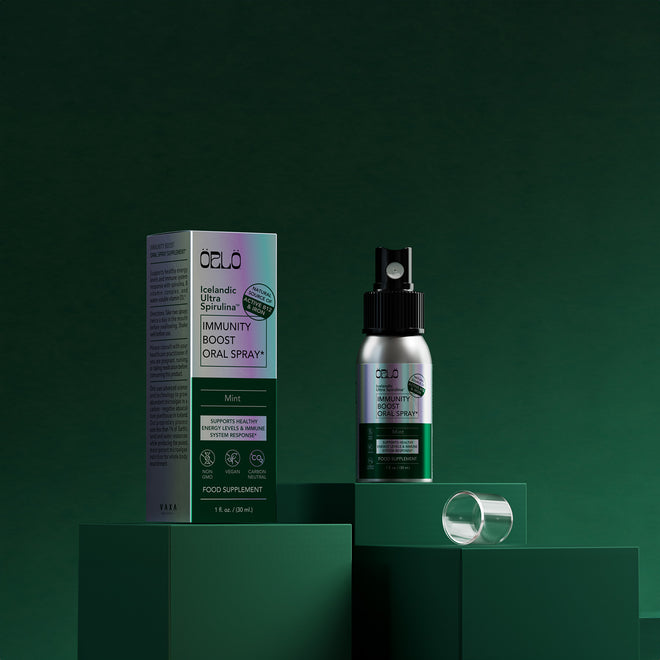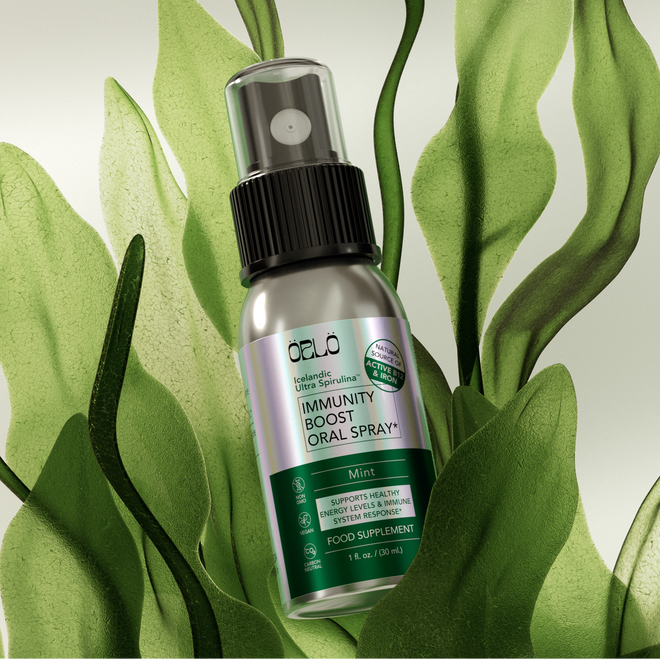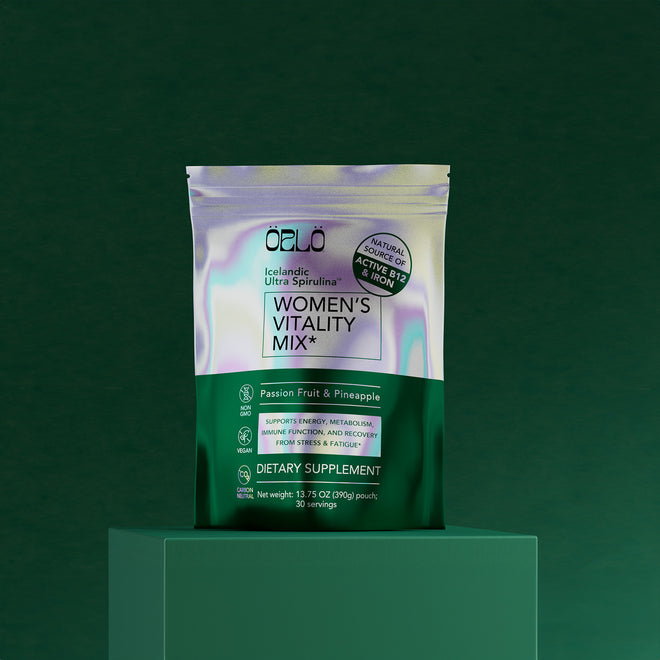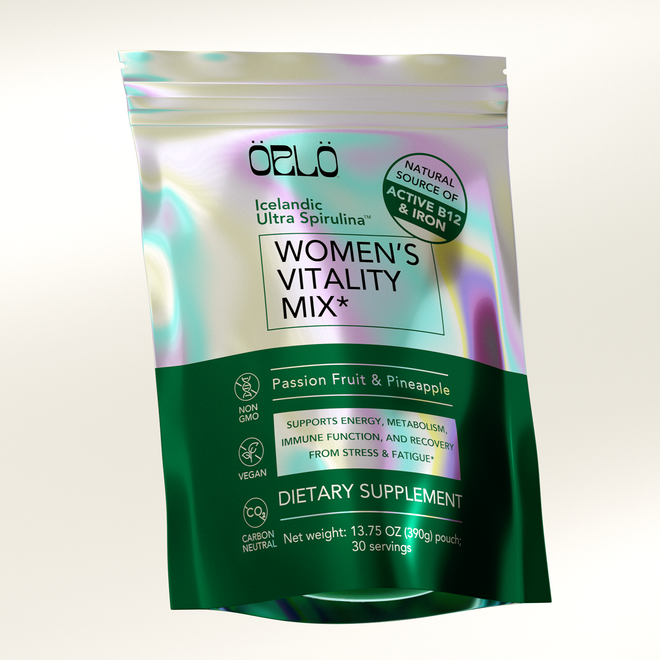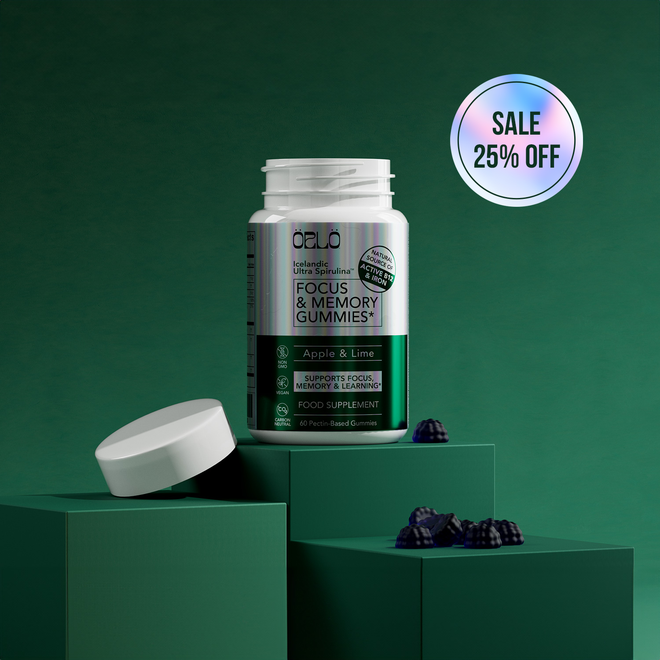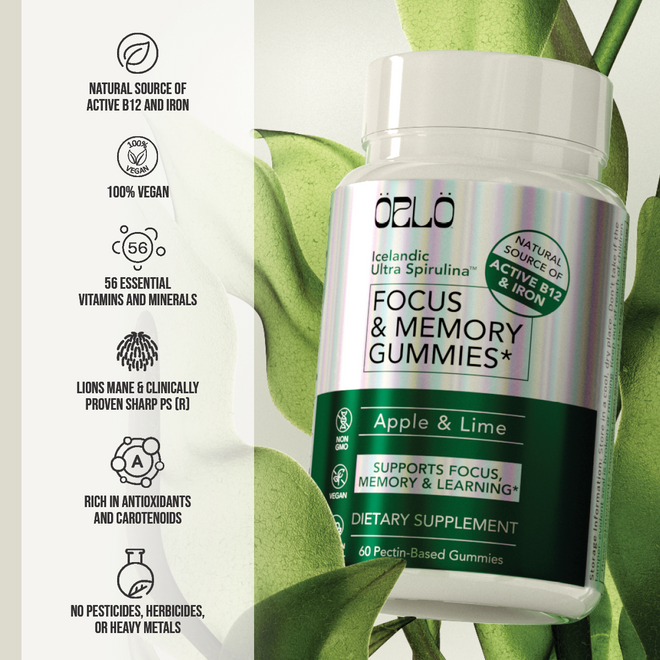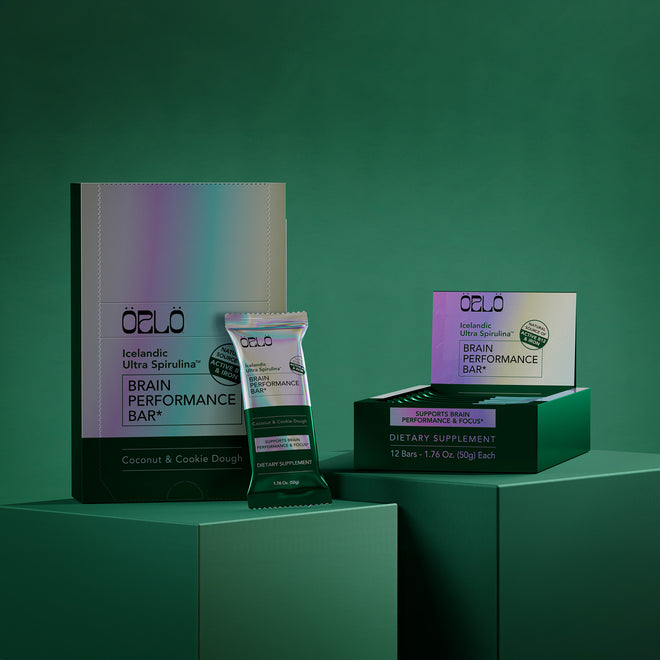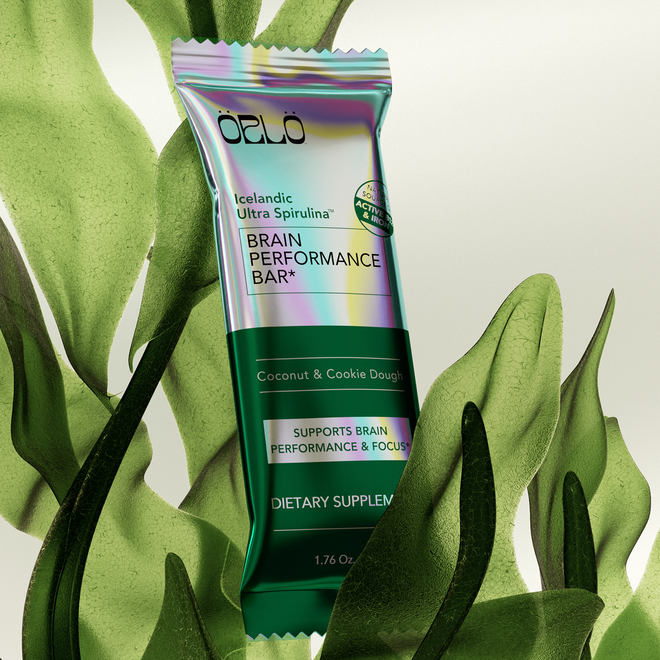25% Off - use code: HOLIDAYS
Real Nutrition For Real Life: Realistic Recommendations For Reducing Stress With Amy Shapiro, MS, RD, CDN
Watch the episode here
Stress is an inevitable part of life, but how we choose to respond to it can make all the difference. With the right nutrition and self-care practices, we can build resilience and thrive in the face of life's challenges. In honor of Stress Awareness Month, this episode will feature Amy Shapiro, MS, RD, CDN to expound deeply on the topic of stress. She discusses how everyone experiences stress at some point in our lives, and it can take a toll on our mental and physical health. Amy shares her expertise on how nutrition and self-care practices can help reduce stress levels and improve overall well-being. She offers realistic recommendations on how to meet your nutrition goals and achieve better health through better nutrition. Amy emphasizes that proper nutrition is important, and it doesn’t have to be that hard! She also discusses how every helpful mantra may look different for each individual, but everyone can start with a few safe options and general strategies to manage stress. Whether you're an elite athlete or someone simply looking to manage stress in your daily life, you'll find valuable insights in this conversation.
Key takeaways from this episode:
- Recent studies show how stress can result in depression and anxiety
- There are many different angles of stress
- Building resilience and managing stress is important for the physical and mental health
- Proper nutrition doesn’t have to be hard
- Stress management can look different for everybody.
Guest Social Links:
Connect with Amy Shapiro: Website | LinkedIn | Twitter
Connect with Real Nutrition NYC: Website | Instagram
Use the coupon code NWC20 for 20% off your first order at https://orlonutrition.com!
Other exclusive links:
Wunder Egg's launch at Expo West: https://vegoutmag.com/news/wundereggs-hard-boiled-vegan-eggs/
John Lefebvre's interview, including his suggestion to "do nothing" for 30 minutes each day: https://caremorebebetter.com/good-with-money-basic-rights-for-all-with-john-lefebvre-philanthropist-author-and-musician/
Mihaly Csikszentmihalyi's TED Talk on Flow: https://www.ted.com/talks/mihaly_csikszentmihalyi_flow_the_secret_to_happiness
---
Real Nutrition For Real Life: Realistic Recommendations For Reducing Stress With Amy Shapiro, MS, RD, CDN
April is Stress Awareness Month. In this episode, we're going to talk about all things stress-related and how you can be more resilient, recovering as quickly as possible from life's unexpected and even expected stresses. The Mental Health Foundation's 2018 study, an organization out of the UK, sampled over 4,600 respondents and reported that 51% of adults who felt stressed also reported feeling depressed and 61% also reported feeling anxious. What's more? Thirty-six percent of adults reported that the stress they experienced in 2022 was related to either their health or the health of a friend or a family member. This statistic rose to 44% for adults that were over the age of 55.
While these simple percentages paint a stark picture, there is hope in sight to lift the skirt on this issue and give us a little hope. I'm joined by a former guest and friend of the show, Amy Shapiro. Amy is a registered dietician who has a ton of experience guiding people through all sorts of life and health challenges from those that seek to lose some weight to those that are working to get the most out of their physical performance, such as elite athletes. She operates out of New York with her company, Real Nutrition New York City or NYC, where she has been in private practice for many years.
She offers realistic recommendations on how people can meet their nutrition goals and achieve better health through better nutrition. Before I offer her the floor, it's important I cover that simple disclaimer. This show is offered for informational and entertainment purposes only. If you have a specific health concern, you'll want to connect with your healthcare provider.
---
Amy, welcome to the show.
Thanks for having me. How are you?
Good. It was so nice to finally meet you in person at Expo West.
There we were getting all of the new info.
I wonder if you have specific new intel to share from that event, something that stood out. If there was anything truly innovative that stopped you in your tracks.
There was a lot of the same but what did stop me in my tracks was the Wunder Egg. It was the vegan hard-boiled egg. It is made without chemicals or interesting things made with nuts. It looked legit and tasted pretty good. I don't taste much when I'm there but I tasted that. That was my stopping moment.
I sample the same thing with a mild bit of skepticism. I am somebody who is mostly plant-based and who still eats eggs. Looking for an alternative is something that has been on my docket list. The thing I didn't like is how much packaging that product came in because they're making it look like hard-boiled eggs. It's cut in half with the yolk yellow shown to you but it had a good amount of protein. The mouthfeel and texture were similar to an egg. They used tapioca fiber or something like that in there to help get that gelatinous feel to the egg white. I also tasted paprika. It almost tasted like to me a deviled egg.
I was expecting to be turned off and there were no gums or things like that used, which I was pretty impressed by. That was my one a-ha, “This is very novel.”
Stepping away from Expo West 2023, the circus for the natural products industry and everybody in the health and nutrition field, I would love to know if you have specific issues that you've confronted with your clientele around stress. Even before we get to that, we can define what stress is for our audience so that they can gain perhaps a closer understanding of the topic we'll be covering.
There are so many different angles of stress. Some of us live with a general baseline of high stress where maybe have families, tough jobs and trying to keep a roof over our heads and the things that are going on in the world. There are these levels of stress but then there are additional layers of stress, extreme moments of stress. Living in New York City where I live, I feel like we all live under a certain bracket of stress constantly then there's stress you put on your body.
Exercise is stress. Temperatures can be a stress. There are so many pieces and it can be a short burst of stress, which is a fight or flight. There is this long systemic stress but it's not systemic. It's more chronic stress that we live under. They can mess with our hormones, sleep, feelings, emotions and everything. That's generally what I think of as stress. Some of it is controllable and some of it is not. It's learning how to manage your surroundings to help yourself manage the stress that you are under.
Why don't we talk for a moment about the triggers that can get us activated into this stress state and then the things that we can do to mindfully return to a feeling of calm after that moment's interruption?
What can get us into these states can be anything from an incident to a stressful moment to the news. There are many things. I feel like we are constantly gathering information or even if you don't want to listen to the information, you want to take a break, you can't avoid it. It's not always automatic. A lot of people have to learn how to manage their stress but it's recognizing that it's stressful and how you deal with stress. Some of my clients are emotional eaters and some are stress eaters.
They have a deadline. They like to constantly move their hands and mouths to make that connection. Some people find themselves in the cabinet or standing up eating instead of sitting and taking a deep breath or eating while being bombarded by stressful information, your smartphone, Instagram and any input that you're constantly getting. It's learning how to manage that. Some of them is changing your behaviors, which takes a long time. Some of it is not reacting on autopilot, which many of us do and changing your pathways. There's a huge learning curve and everybody has to recognize what affects them.
One that most people can relate to is the simple action of your phone, providing an alert every time an email comes in or there's an update on someone you follow in your Twitter feed. What I often counsel friends and families to do is, “You don't have to go on a full digital detox but shut off the alerts because it constantly distracts your attention. Even those minor distractions can add a little bit of resident stress throughout your day where your system's constantly trying to get back to normal.”
It’s important to take breaks from technology. It doesn’t have to be a full digital detox, but you have to shut off the alerts which constantly distract your attention.
That sets us up for failure as opposed to success. Digital detoxes can be very healthy. You'll read a lot of different studies that say, “Limit when you're on your device. Set it on its charger outside of the bedroom. Don't start your day first thing by grabbing your smartphone and scrolling through email or your newsfeed.” Develop a healthier habit that can help you to sustain cortisol and reduce that stress response constant state. You're better positioned than when an actual stressor occurs to handle it.
Everybody handles that differently. Some people are not affected by their phones and some people are. It's also recognizing who you are. I have certain clients who feel so much better when they take social media off their phones. It's not a temptation and not sitting there waiting for them. In some people, it doesn't get to them. Everybody has to tune in. This is another area of health and wellness that helps to be individualized.
You can't even build in practices where your smartphone might give you an alert every hour to get up from your desk and walk around, which also can help you to reduce your stress. There are tools that your devices enable. I'm saying the oversalt of having constant reminders can be a lot.
If you have a smartwatch and then you're constantly buzzing on your arm, you can never escape.
Now that we've defined stress as being some things that are perhaps avoidable but can be triggered by a specific thing, it could be something that wasn't stressful in the past but is now stressful for you. I'll give you an example to make this real. I started to get nearly daily calls from my son's school about some behavior issues when he was five years old. It got to the point where when I saw my phone ring, I would feel the anxiety well up from my stomach and up through my spine like, “What now?”
This isn't something that would typically have triggered me before but because of my present circumstance, it was a lot. I had to acknowledge, confront, speak it and give voice to the fact that I was anxious about this thing that we were going to have to work through and that perhaps would get better with time, which it did. It was a stressor that came into our lives that we couldn't avoid and that we had to work through.
Building a practice that enables you to confront that issue and then relax, maybe it's a breathing exercise, taking a mindful moment or even after that call is over, sitting back and saying to yourself a mantra that will help you get through the moment. That could be different for everybody. Now that we've done that, I wonder if there are specific dietary and practice tools that you like to give to your clients, specifically those who are living very busy lifestyles and who perhaps are working to be that elite athlete. I mean, the full gamut here.
It's very easy to spiral when you are in a stressful moment. One of the things that I always recommend is to have a plan. Once you can control an aspect of your life a little bit, you do feel more in charge. I always like to recommend having a plan and a routine that you know you're going to execute unless it gets in the way but if you're already feeling stressed, having that plan does work. For me, I always wake up before my children so I can get at least 30 minutes of alone time and some hot water with lemon in a state where I want to be in. I don't meditate, I know that I should, I'm working on it but this is more like my moving meditation.
From there, I can collect myself to get the morning, which is pretty stressful, under control. I only eat after I get my kids out the door because if I'm eating with my kids, I feel very rushed and then it doesn't register right. I know that that's how it works for me. I recommend these things to many of my clients. No matter if they're professional athletes or parent athletes or just humans functioning in a high-stress world, it's to have that routine because I know that if one of my kids wakes up within those 30 minutes, my whole day starts differently. I need that time to digest what's going to happen in the day.
Start a routine and have a plan for how your day's going to start. Ideally, you want to get outside, be exposed to light and take a few deep breaths. Especially while we're eating, we forget to breathe. We eat so quickly that we forget to chew. That's something that I usually recommend. I also have what I call your no-excuse meals. If you have a jam-packed week or day, you have your automated, “I'm going to grab my two eggs, my toast with peanut or go-to's where I don't have to think and get stressed and then end up eating out of a frenzy.”
You have your automated food plan for those moments to structure your day. That's one of the things. It's always, “How can you be prepared,” because if you're caught off guard, it can add to your stress. Those are a few things that I like to set up in the beginning. It's 50% of the challenges being prepared in life in general but with food especially and emotions and to give yourself that time like, what is coming up that you can prepare for? If something gets in your way, at least you have a little bit of a plan.

You said something I want to touch back on. You felt like you should be meditating. A lot of people experience this. I am also one of them but when you're constantly shooing yourself like, “I should be doing this and that,” that also adds a layer of stress to your life. For some people, that quiet moment that you have in the morning is what you need to reset yourself and relax.
Perhaps it's that quiet moment. I had this gentleman I interviewed for another show I host called John Lefebvre. He shared with me something that has been life-changing for me and I'd like to share it with everybody here. He said, “Every day, take 30 minutes to do nothing. It doesn't have to be meditation. Sit down or go for a walk. It doesn't even have to be moving but not committing to doing anything. I do this by going outside and taking a seat. If it's raining, I'm under an awning. If it's doing this, I'm doing that.”
He makes it part of his practice. The action of not committing to a single thing for 30 minutes, his mind might wander and come up with a new idea. It might be meditative but it might not. It's just not having anything on your docket to add to the stresses of your day. I started to do this and granted I've fallen a little out of practice because we've had a bit of chaos around my home with floods, which are stressful. Atmospheric river after atmospheric river, hitting California, not knowing for moments, “If my downstairs office going to flood, what do I have to do?” This is an outside stressor. Something that I could not change or affect is the weather.
My home is fixed in place. I can't change that at a moment's notice. This was a huge assault on me. I realized when I had construction hammers banging in my house to fix some of the problems that we encountered, I hadn't taken one of those 30-minute breaks for weeks. This is something that we can all appreciate. It's not to sit there and eat, scroll on your phone, look at what's trending on TikTok or listen to an audiobook. It's to sit and do nothing for 30 minutes and let that look like what it looks like. It was a game-changer for me and going to be a game-changer for me again because I'm going to integrate that shift. I'm fairly confident that it will help me get back to my center.
There's a reason why I don't meditate because that typical kind doesn't work for me but I always have those 30 minutes in my day and I feel it when they're interrupted. You have to know what works for you. It's individualized.
There's this other leader, Mihaly Csikszentmihalyi, who wrote a book called Flow, which was all about this perspective that you don't necessarily have to be still to have a meditative moment. Repetitive motion can be incredibly soothing. This was something that I resonated with because I noticed that I got the most peaceful and quiet when I was doing long-distance runs over 8 miles, where there’s a rhythm with the foot motion. I didn't run with music. I just ran with myself. I like to be out in nature and listen to the birds tripping. Ultimately, I get to the space where I felt quiet and clear. I also noticed the same thing when I was doing simple tasks like washing dishes or even rubbing down my horse after a long ride.
These repetitive motions do something to quiet the mind, especially if you're more than the type of busy person who simply doesn't quiet into crisscross apple sauce. I don't want to work through cultural appropriation in any way here but I'm not sure what they refer to that pose in yoga anymore as either it's a certain pose at any rate where you have your hands on your knees and you're calming or even going into child's pose and being quiet or something like that. That can work for some people but for me, I'd get busy brain at that moment. Let's talk about some of your favorite dietary tools that can also help us recover from stress.
Before I talk about what I like to remove, I always talk about what I like to add. When we're talking about stress, things that we want to incorporate into our food are those that are high in B vitamins and B12, which do help us to metabolize cortisol. Some of these things are plant-based. Some are not. We have anything from fortified grains to chicken, beef and nutritional yeast. These are foods that we want to incorporate that many people don't get in enough into their diet. If I do have a client who has a little bit more stress, I will recommend a B-complex supplement. I also like to recommend foods that are high in Omega-3s because this decreases inflammation and also helps with stress management. Anything from walnuts, chia, flax, grass-fed beef, eggs, pasture-raised eggs, salmon and seafood, all of these are great additions.
This is an area where I find most of my clients do not get adequate amounts of Omega-3 in their diet from food. This is someplace where I might recommend supplementation, either or low from algae-based for vegans or fish oil-based. We all have been hearing about magnesium, which is depleted in our soils. Eating foods that are high in magnesium can also help to relax the body and the central nervous system. It does help to metabolize cortisol. These are common foods. Many people do enjoy avocados, bananas and broccoli but then additional foods like pumpkin seeds are high in magnesium. Some people also feel great when they supplement in the evening time with magnesium.
We always want to manage blood sugar levels. That means eating adequate amounts of protein at meals. From beans, tofu, tempeh, chicken, beef and eggs. These good quality proteins help to balance blood sugars, to prevent blood sugar spikes, which when they crash, we often feel those anxious feelings. We sweat and get our heart rates up. Finally, foods that support the gut. We want to incorporate foods that are high in fiber because those are the prebiotics. We want to incorporate healthy bacteria through kimchi, sauerkraut, kefir and Greek yogurt. These are all great things because there is that gut-brain connection. All of that does help to manage stress, which are my go-to food groups that I often feel most people don't consume enough of. Once they're encouraged and we break it down, then they can easily add them to most meals at most moments.

To your point, often you'll see that stress-oriented supplements contain a smattering of B vitamins, which are also something that can help with that busy brain, which is a result partly of that overabundance of cortisol in our system and that inflammatory response that our body is under. You mentioned Omega-3s. I'll pause here for a moment to share that there's no time like the present to get yours. We do have Omega-3s offered by Örlö Nutrition as Amy had not mentioned. These are in the polar Omega-3 form. They're highly bioactive. This means they're better absorbed than even fish oil. You can get them with a smaller pill and no fishy burp. They're vegan, have unsurpassed purity and freshness and are documented to be the world's most sustainable source of nutrition on planet Earth.
I say that with not a bit of skepticism. You can look at the website to find out a lot more. Our audience gets 20% off at checkout. Use the coupon code NWC20 at checkout and you'll get 20% off your first order. Getting back to magnesium, I want to talk about this for a moment because this is powerful for people at several stages of their lives. You mentioned even wanting to take it before bed, which can also help to have a calming evening.
Many people had a moment in perhaps January when they decide they were going to stop drinking alcohol, for example. They wanted that relaxing feeling in the evening that they would get with that glass of wine. Perhaps they would take a kava supplement, kava beverage or even powdered magnesium that they would dissolve in a cup of camomile tea and enjoy that relaxing feeling.
Magnesium also is involved in cramping and muscles. If you're noticing that for instance, you get calf cramps in the middle of the night, you're likely deficient in magnesium. It's not about supporting your recovery from stress. It's about making sure that you get enough every day. If you're not eating certain foods, perhaps like pumpkin seeds and a plant-rich diet, you may not be getting enough of this essential mineral. It is one of those that I tend to recommend people in my life supplement with during times of stress.
There is a variety of magnesium to choose from based on the symptoms that you're feeling. I also think you mentioned powdered tea. Even incorporating a tea routine, a bedtime routine with or without magnesium, that is also very calming and does scaffold you the way maybe a glass of wine, which is one of the things I like to eliminate when people are feeling a lot of stress. Scaffolding yourself with an evening routine also helps.
If we can touch on the foods that I like to remove now that we've discussed what we should include, that's how I gently work with my clients. There's an act of abundance and then it makes removing some of your favorite things a little easier. Some of the things that we look at removing under extreme conditions of stress, especially when your cortisol is high or a certain points in your life, it's because they either create inflammation or disrupt sleep. These are the things that people often reach for when they are stressed.
That's alcohol. We tend to reach for a glass of wine or a cocktail when we're feeling stressed to bring ourselves to calm and it works temporarily but then eventually can disrupt our sleep, which can lead to more extreme levels of stress. For some people who do not metabolize it well, coffee can create a lot of anxiety for some individuals. That caffeine can cause that caffeine spike. Even though people do love their coffee and it is a conversation that I have to have gently, there are other options like maybe matcha. It is a little bit of a better idea because it does come along with altheine, which is an amino acid.
You're making me squirm.
I'm sorry about the coffee. I love coffee. I metabolize it well. I'm sure that you do as well.
Even though I do metabolize it well, I notice if I have tea as opposed to coffee that I tend to remain calmer.
Matcha and even green tea come with altheine naturally in them. Altheine is an amino acid that prevents that extreme fight-or-flight adrenaline rush we get from caffeine. It makes it more of an even curve as opposed to a spike and then a down. That might be a good option. It's not that caffeine is bad but maybe we need to balance it out a little bit more. Maybe at certain times of the month or when you know stressful meetings are coming up, switch for the time being. It doesn't mean coffee has to be out or in the afternoon. I know myself, I will not have coffee after 12:00. I do pivot to tea because that works for my body rhythm.
Sugar is another one. People reach for sweets when they're stressed. It's often because they're reaching for quick energy to get them through that moment. When we have that stressful moment, blood sugar spikes and then crashes, it increases our anxiety and stress levels and does not support our hormones at all so do these quick hits and sugar bursts that don't come along with any fiber or nutrition. These are the things that I try to eliminate from my client's diets while crowding them out with more nutrient-supportive food. It's not like you're sitting around starving and have no methods to support yourself. You are reaching for something that is going to be a little bit more supportive for you.
People reach for sweets when they are stressed. It's often because they're reaching for quick energy to kind of get them through that moment.
We had Dr. William Li. He talks about the Holy Trinity of beverages and essentially they are tea, coffee and water. There's water in all of these things but you still need to drink water on its own. We had Dr. Anderson on this show who's a specialist in post-infectious diseases. Even those that are post-COVID or having long-term symptoms from an infectious disease, he said the vast majority of people are walking around under-hydrated. If they drank more water, they would feel not just a little better but a lot better.
That is my first recommendation for all of my clients. I say, “If you leave today's session with one thing, I want you to meet your hydration goals because it is that much of a game-changer.” It's also the thing that everyone rolls their eyes at me at like, “This is what you're teaching me. You're teaching me to hydrate. I know that but who's doing it?” Once they do that, they feel so great. It's a game-changer.
This is something that I learned from listening to Dr. Perlmutter. I'm interrupting because this tip is incredible. We have a problem with an over-acid system situation in our bodies too, which also increases our cortisol levels. He is working to help people drop the acid levels in their bodies. One of the things that he talks about in his latest book, Drop Acid, which has this beautiful cherry on the front, because cherries help to reduce the acid levels in your body, is that we store water in our fat. If you aren't consuming enough water that you start storing more of it, your body has to create and store more fat and water to get you through those difficult times.
He points to, for instance, the camel's hump. How does a camel store water in its hump? It's because it's stored in the fat cells themselves. Think about fat and you're like, “Fat isn't water-soluble,” but there are these wonderful things called polar lipids, which are also in Örlö’s products. They're both able to go through water and lipid forms because of their polar heads and water-soluble tails. They can go through these types of materials.
This is how your fat stores water. Overall, if you aren't consuming enough water, you both are more likely to overeat foods that may not be healthy for you because you're thirsty, not hungry and you don't know the difference. Secondarily, you're going to store more fat because you don't have enough water and your body needs water to survive. Your body is preferentially thinking, “Store more fat and water.”
It's like a foundational nutrition tip but nobody wants to do that. They want the next. I'm always encouraging you to hydrate because, A) It can be free if you have clean water available but, B) It's easy. It's one of the baselines. Even though people come to me for elevated tips, I always make sure their baseline is intact and that's what moves the needle most. Being hydrated also helps you to not feel stressed. It helps to decrease stress on your joints and sleep better. All of the things don't hydrate too much before bed.
It's because then you'll wake up and go to the bathroom. You also mentioned adequate protein partially to keep your sugar stable throughout the day. Those trending plant-based may not be getting enough protein for their overall diets. There are a lot of people saying, “You don't need as much protein as people say you need.” Especially for those that are working to be elite athletes, there's a certain amount that you need that you're not burning your muscles to create a performance. Let's be real about this. What do you suggest to your clients about their protein intake? I'd also like to talk about potential sources to boost your protein. What kind of plant-sourced proteins you might prefer?
In most of my clients, I do recommend having protein at every meal and snack depending on your program because everything's individualized. I do recommend making sure that each meal and snack does contain some protein. We get it a lot easier if we're animal-based. 3 ounces of chicken is going to give you 21 grams of protein and that's pretty easy. Most of us are getting 4, 5 or 6 ounces anywhere we're getting a serving.
The reason why I recommend this is you want to get your protein consistently throughout the day and balance your blood sugar levels. It does help to satiate your hunger because protein is the macronutrient that takes our body the longest time to process. It helps to maintain your muscle mass, which means that your metabolism stays stoked and you're not eating away at your muscle tissue.

I do recommend anywhere from 21 to 30 grams of protein at most meals and anywhere from 5 to 15 grams of protein at most snacks. This can differentiate based on the size of the person, gender and activity level. With animal-based, if it is available, I do recommend organic grass-fed pasture-based because then we're avoiding the antibiotics and increased inflammation. With grass-fed products, you are getting more Omega-3 fats as opposed to when they're grain fed and you're getting more marginalized saturated fats. I do like to encourage individuals to do that. When we're talking about plant-based, you can get your protein from that but it's harder to meet your goals because plant-based proteins do come along with more carbohydrates and per serving, there's less.
To meet your 21 grams of protein from quinoa, I'm using that as an example, as opposed to chicken, you're going to have to eat 3 or 4 cups of quinoa, which is a lot of food. I recommend for my plant-based clients be educated on what foods need to be paired because you will get the nutrients throughout the course of the day. Pairing those amino acids together, leaning on hemp seeds, leaning on seeds and nuts a little bit more some tempeh, tofu and clean organic if possible when we're working with soy products to meet those goals. It's doable. It takes some coordination and thought. You do lean a little bit more on fat probably to keep your blood sugar balanced when you are incorporating these foods that are higher in carbohydrates. You're not constantly chasing your hunger, which is the goal.
When working with some of my plant-based clients, I do like to recommend that they incorporate sometimes a protein powder because usually, plant-based is anywhere from 18 to 21 grams of protein per serving but it's going to be coming from we're going to look for clean, sustainable sources and no more than once a day if you are taking a powder form. It's going to be individualized and very strategic because I do have many plant-based clients who are not the healthiest individuals, overweight and have high cholesterol because some plant-based foods our pasta or bread. If you go to a restaurant and ask for the vegetarian or vegan option, you're usually going to get a lot of starch. It's not curated with a lot of clean, plant-based protein as well.
You might not be getting as many micronutrients for that reason but you think you're eating healthy.
I always like to say french fries and potato chips are vegan but if you're out with friends and that's what's available for you and you're hungry, you're going to sometimes be missing the mark.
One of the things I also have added to my regimen is a vegan unflavored mixed protein. Sunwarrior makes one that has a pretty good broad spectrum of its proteins because it has some fermented proteins in there. That helps you digest them. You're less gassy for that reason. 1 scoop has 20 grams of protein in it without a lot of grassy adulterants because it's unflavored. That means unsweetened and unflavored. I'm like, “I'll add some more nuts, seeds, berries and things like that to it to make it a more complete meal for me.”
I can't do that three times a day. I would feel like I was depriving myself across the board. A single egg has 7 grams of protein and the same grams of fat. It's a fairly balanced food. If you wanted to increase your total protein from eggs without increasing the fat, you could leave the yolk out and eat more eggs. There are ways to get it up in that direction correctly. There are also whey proteins if you still do dairy that is responsibly sourced and rBST-free so they don't have those steroid compounds in them.
It is the same with Greek yogurt and cottage cheese. If you do eat dairy, those are two sources that I recommend because a serving of Greek yogurt has 16 grams of protein and cottage cheese isn't far behind. You can manipulate the fat percentage if you are watching your saturated fat intake. If you're vegetarian and not vegan, these are also great nourishing filling and very widely available food options. In New York, we have Corner Delis everywhere but even Starbucks if on a road trip do sell Greek yogurt. Usually, it's the Siggi's which is rBST-free.
Are there other vitamins or minerals that people tend to burn through when they're overstressed, aside from the B vitamins, which were water soluble that you're aware of?
A lot of people do feel excess stress if they're deficient in vitamin D3, which is supplemental and we don't get it through many foods. Sometimes eggs and a little bit of fortified foods but that is another one that we do feel the effects if we are stressed. Those are probably the big ones that I'm thinking of to help with oxidative stress. Vitamin C is a good supplementation or to consume some oranges, Kiwis, strawberries and red peppers. Vitamin C does help with oxidative stress, which also helps immunity. Those are some that you can easily add to your regimen.
You don't need to go to a supplement for that either. If you're eating a variety of colorful fruits and vegetables, you're likely to get plenty of vitamin C. At Örlö, we have Spirulina Immunity Boost that contains vitamin D3 along with some B vitamins. You can visit OrloNutrition.com and check that out. The NWC20 coupon code will work for that. What I love about immunity boost is that it combines spirulina with inborn vitamin b12, specifically from the spirulina itself. This is unique to the spirulina that we're growing. It makes it a unique play. It is very healthy for vegetarians to ensure that they're getting enough. Another vitamin that people tend to be diminished particularly women of menstruating age and also those vegetarians and vegans is iron. Do you know if there's a correlation between stress response and iron?
I don't know if there's a direct correlation. I do know that we often feel tired when we are deficient in iron. You feel that low energy which can add stress or you feel like you can't get yourself to that level of functioning.
People will often feel tired when they are deficient in iron. That low energy can add stress, which can make them feel like they can't get yourself to that level of functioning.
I wondered about that specifically because when I'm tired, I'm more likely to snap at something minimal like my child didn't put their socks in the basket. Of course, they didn't. They're young. I can't have a hard time getting my husband to do that.
Even though many plant-based foods are rich in iron, it is often very high if you are deficient to bring up your levels without supplementation through iron-rich foods if you're not eating animal-based products.
That specifically would be things like pumpkins and beets.
Nuts, seeds, beans and dark leafy green veggies. There's iron in almonds and a variety of different foods but sometimes they are combined with other nutrients. Dark leafy greens also have calcium and they block the absorption of each other. You need to eat them with acid so you release the oxalates. It's a whole process. If you eat eggs, you do get iron in the yolks. This is an area where typically, to eat enough pumpkin seeds to bring up your levels, usually supplementation is very helpful.
There are people on the animal product side that will say, “Go eat liver.” I'm sure that can work for them but does not sound remotely appetizing to me and for any vegetarians out there, that's a hard pass.
They do have liver supplements. It is something I saw a bit at Expo. Organ meats are very nutritionally dense for those individuals who like to consume them.
That's for certain, not for me but I get it. Before we prepare to wrap, I would love to ask you to share a little bit more about the programs that you offer specifically. As you got into this topic of co-nutrients and things that might impede absorption, that can get tricky for people if they're trying to manage their health through nutrition, even with supplementation. Can you share a little bit about the programs you offer? Do you also have a one-day diet plan that you can offer to the crew?
My whole approach is realistic nutrition because all of my clients are busy, individuals either working or parenting. Just living. My whole approach is realistic because I do think that proper nutrition doesn't have to be hard. Let's sometimes focus on those baselines. I do very individualized nutrition programming for my clients based on their specific goals and needs. We can change it up if they're traveling, staying home, cooking, don't cook and dining out every day. It's very individualized to make sure they're getting what they need. If they cannot get what they need from their food, which many individuals can't, then we do supplement appropriately. I do corporate wellness lectures and talks. I speak to large groups, which I love because disseminating information that can change people's lives in an hour is powerful. They can spread that good nutrition tips and break through some myths.
I also do collaborate with brands and companies to do recipe development or make sure things are meeting markers. I do offer a one-day reset on my website if you sign up for our newsletter. That is giving you strategies, tips and tricks on how to implement balanced nutrition into a single day. You can rinse and repeat as needed. On my website, I do offer a three-day meal plan because some people need ideas. It's not wrong or bad to eat the same breakfast every single day if it makes it easy for you and nutritionally balanced.
It will always incorporate a variety of nutrients, plant-based, regular protein-based with substitute regular protein and animal-based protein with substitutes if needed but also there'll always be a variety of colors in the vegetables that we're eating because that is what affects the activities of the vitamins and minerals in our body. It's eating a variety of eating a rainbow but we're going to try to make nutrition, which can be super overwhelming. It's like we experienced going through Expo. There are many things. It's like, “How do you bring it down? How do you cover your bases first before you elevate to the other extremes which are not always necessary to feel your best?”
Your website is RealNutritionNYC.com for Real Nutrition New York City. You serve people outside of New York City since we've all learned to work in a remote world. If the readers want to collaborate with you directly and get a meal plan, I'm sure they can reach out directly.
You can always follow along over on social media. It's simply @RealNutrition.
On Instagram, I see you provide a lot of sound advice some great recipes and practical tips. I appreciate that. That's simply at @RealNutrition, which I have to say is probably worth it.
I don't know how I landed that but I did years and years ago. I'm glad I made that happen.
Hopefully, some of our readers can go and join you there @RealNutrition on Instagram. I appreciate you so much for joining me in this discussion. All of the practical tips you've provided are immensely helpful to me too. I am trying to address my protein because I got a little too lazy on that. I noticed that even though I was consuming fewer overall calories because I was eating more plants, I was getting a little fattier.
It relates to not getting enough of the vital proteins and having that shift in how I metabolize food. I'm working to correct that and I've reintegrated a responsible whey protein but it's hard sometimes to confront these issues and what's best for your health specifically when you also have moral or ethical dilemmas afoot as well. The fact that you're providing tips on even integrating more plant-based proteins is immensely helpful for readers. I may have to tap you on the shoulder at some point in the near future and say, “This is what's working for me and this isn't. Can you help me figure this out?”
I'm here for it.
Thank you so much, Amy.
It’s my pleasure. Good to see you.
---
To find out more about Amy Shapiro, her programs and to subscribe to her newsletter, go to RealNutritionNYC.com or visit her Instagram page at @RealNutrition. If you learn something, I hope that you'll subscribe to the show. This will help more people to discover this show so that we can help to improve their health naturally. While you're at it, give us a thumbs up, a five-star review and even a written review. All of these things are immensely supportive.
To learn more about what we are doing at Örlö Nutrition to build better nutrition solutions that are better absorbed so that you can reach your best health, visit OrloNutrition.com. This show is all about serving you. If you would like to dive into specific topics or have questions that you'd like to see answered on this show, please reach out. You can send an email note directly to Hello@OrloNutrition.com or follow us on social channels and send us a message there at @OrloNutrition. As we close the episode, I hope that you'll raise a cup of your favorite beverage with me as I say my closing mark. Here’s to your health.
Important Links
- Real Nutrition New York City
- Wunder Egg
- Flow
- Good With Money: Basic Rights For All with John Lefebvre, Philanthropist, Author and Musician With John Lefebvre – Care More Be Better: Social Impact - Sustainability – Regeneration Podcast
- Eat To Beat Your Diet: Dispelling Myths About Fats And Metabolism With Dr. William Li – Past Episode
- Finding The Path To Recovery From Post-Infectious Illness With Dr. Paul Anderson – Past Episode
- Drop Acid
- @RealNutrition – Instagram
- Hello@OrloNutrition.com
- @OrloNutrition – Instagram
- Flow, The Secret To Happiness
About Amy Shapiro
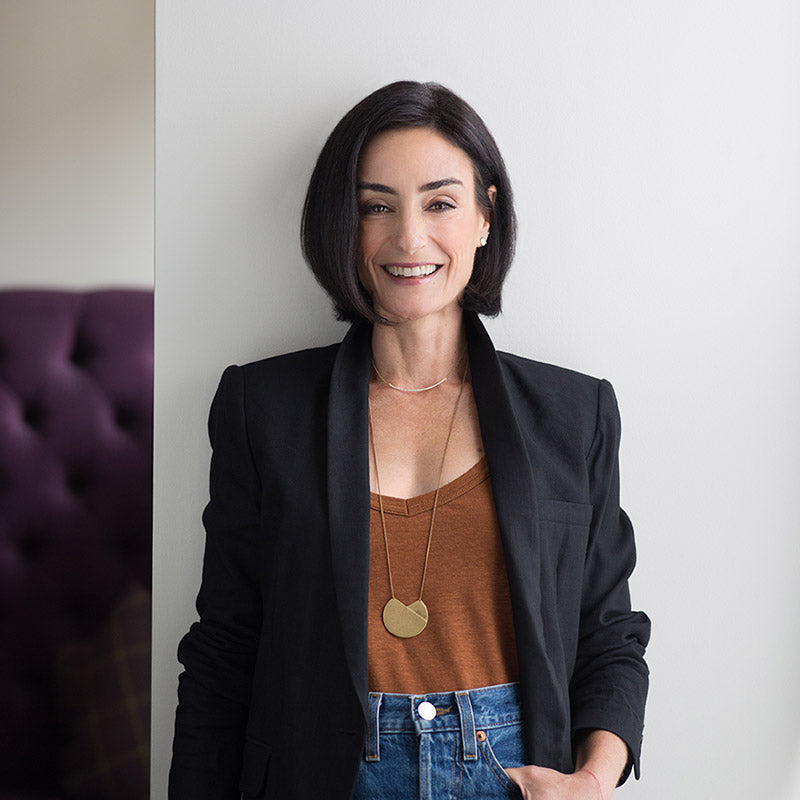
Amy Shapiro MS, RD, CDN, is the founder and director of Real Nutrition, a NYC-based private practice dedicated to healthfully and successfully guiding clients to their optimal nutrition, weight, and overall wellness. She is internationally recognized for her individualized, lifestyle-focused approach, which integrates realistic food plans, smart eating habits, and active living. Through encouragement, education, and the right “tricks of the trade”, Amy believes that anyone can achieve their nutritional goals while still enjoying the foods and flavors they crave.
